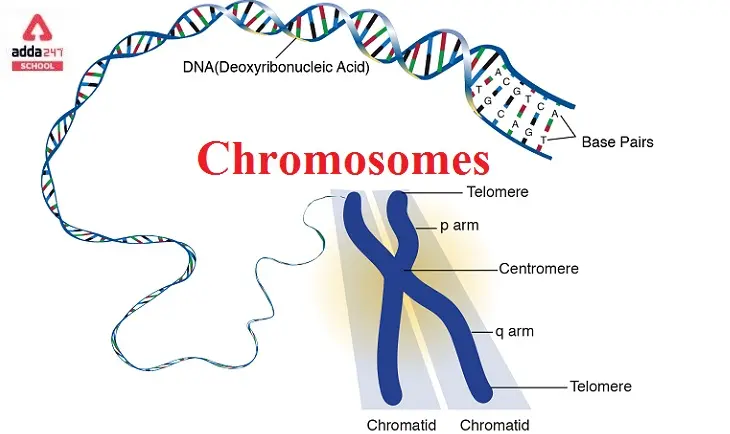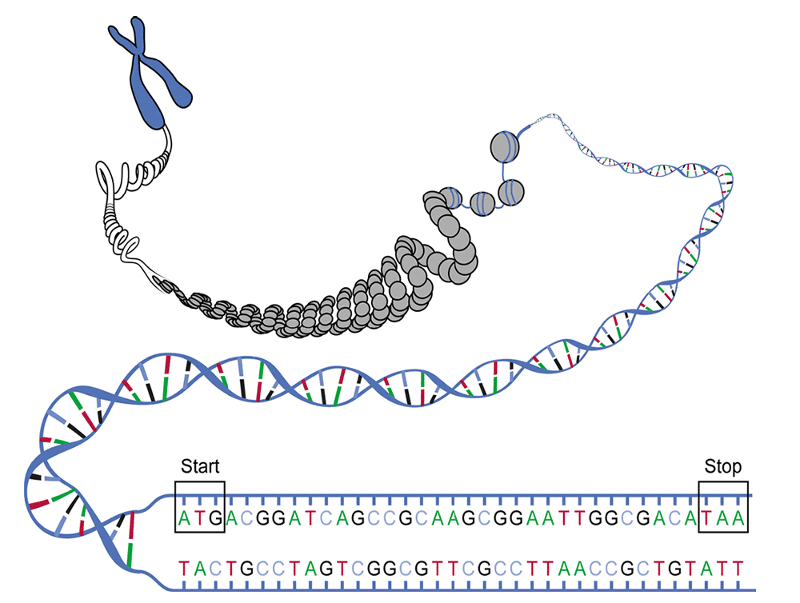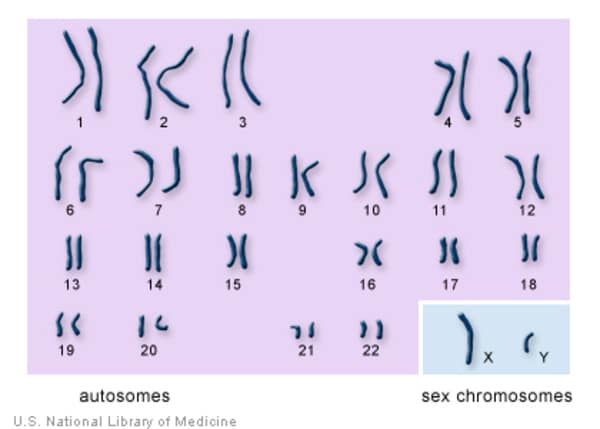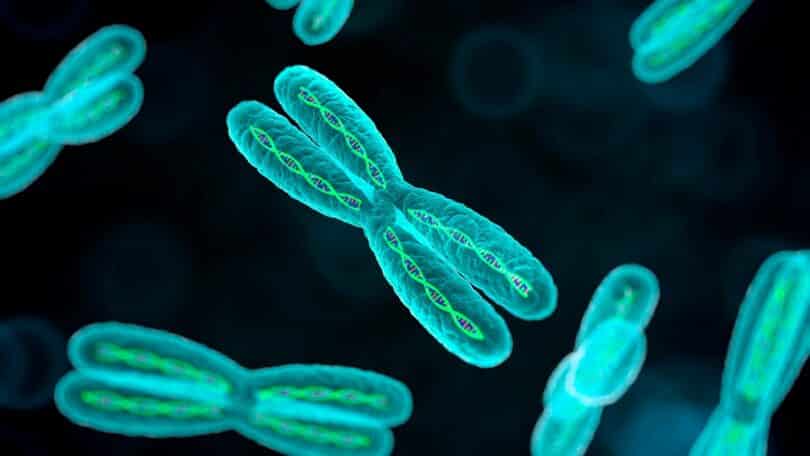How many Chromosomes do Humans have: Chromosomes are structures within the nucleus of a cell that carries genetic information in the form of DNA. They are made up of DNA, histone proteins, and other associated proteins. Chromosomes are typically rod-shaped structures that can be seen under a microscope during cell division.
RELATED: How Long Does Implantation Bleeding Last
Table of Contents
In humans, there are 23 pairs of chromosomes, for a total of 46 chromosomes. Each parent contributes one set of 23 chromosomes to their offspring. The chromosomes contain genes, which are segments of DNA that carry instructions for making proteins, the building blocks of life.

The arrangement of genes on chromosomes determines an individual’s physical traits, such as eye color, hair color, and height, as well as susceptibility to certain diseases.
How many Chromosomes do Humans have
Humans have a total of 46 chromosomes, which are arranged in 23 pairs. Each cell in the human body (except for red blood cells) contains 23 pairs of chromosomes, with one chromosome in each pair coming from the mother and the other from the father. These chromosomes are responsible for carrying the genetic information that determines many of our traits and characteristics.
Of the 23 pairs of chromosomes, 22 pairs are known as autosomes and are identical in males and females. The remaining pair is the sex chromosomes, which determine the gender of an individual. Females have two X chromosomes, while males have one X and one Y chromosome.

The human genome, which is the complete set of DNA in a human, contains roughly 3 billion base pairs. These base pairs are arranged into 23 chromosomes, with each chromosome containing many genes that are responsible for different traits and characteristics. Understanding the structure and function of these chromosomes is essential to understanding human genetics and biology.
In summary, humans have 46 chromosomes, arranged in 23 pairs, and these chromosomes carry the genetic information that determines many of our traits and characteristics.
Do humans have 24 or 48 chromosomes?
Humans do not have 24 or 48 chromosomes. The correct number of chromosomes in humans is 46. This number is arranged in 23 pairs, with one chromosome from each pair inherited from the mother and the other from the father.

The confusion over whether humans have 24 or 48 chromosomes may stem from the fact that some organisms have different numbers of chromosomes. For example, dogs have 78 chromosomes, while fruit flies have only 8 chromosomes. However, the number of chromosomes in a species is a characteristic feature and is consistent within that species.
In summary, humans have 46 chromosomes, which are arranged in 23 pairs, and not 24 or 48 chromosomes.
Can a human only have 23 chromosomes?
No, a human cannot survive with only 23 chromosomes. The normal number of chromosomes in a human cell is 46, which is arranged in 23 pairs. Each pair of chromosomes contains one chromosome inherited from the mother and one from the father.
Chromosomes carry genetic information in the form of genes, and any significant alteration in the number or structure of chromosomes can lead to genetic disorders or developmental abnormalities. For example, Down syndrome is caused by the presence of an extra copy of chromosome 21, which results in a total of 47 chromosomes in affected individuals.
Therefore, a human with only 23 chromosomes would be missing many essential genes and would likely not be viable. In fact, even having an abnormal number of chromosomes (such as 45 or 47) can result in significant health problems.
What happens if you have 47 chromosomes instead of 46?
Having 47 chromosomes instead of the typical 46 is a condition called trisomy. Trisomy occurs when there is an extra copy of a chromosome, and it can occur with any of the chromosomes in the body, but some trisomies are more common than others.
The most well-known trisomy is trisomy 21, which is also known as Down syndrome. People with Down syndrome have three copies of chromosome 21 instead of the usual two. This extra chromosome causes intellectual disabilities, distinctive facial features, and other health problems.
Other trisomies that can occur in humans include trisomy 18 and trisomy 13, which are much less common than Down syndrome. Trisomy 18 and trisomy 13 can cause severe intellectual disabilities, physical abnormalities, and other health problems.
Trisomy can occur spontaneously during cell division or it can be inherited from a parent who has a chromosomal abnormality. Prenatal testing can detect trisomy during pregnancy, and genetic counseling can help individuals and families understand the risks and implications of a trisomy diagnosis.
In summary, having 47 chromosomes instead of 46 is a condition called trisomy and can cause a range of health problems, depending on which chromosome is affected. Down syndrome is the most well-known trisomy and is caused by an extra copy of chromosome 21.
Conclusion
In conclusion, humans have 46 chromosomes, which are arranged in 23 pairs. These chromosomes carry the genetic information that determines many of our traits and characteristics. Trisomy, a condition where there is an extra copy of a chromosome, can cause a range of health problems depending on which chromosome is affected. Down syndrome, caused by an extra copy of chromosome 21, is the most well-known trisomy.
Genetic counseling and prenatal testing can help individuals and families understand the risks and implications of a trisomy diagnosis. Understanding the structure and function of chromosomes is essential to understanding human genetics and biology.

